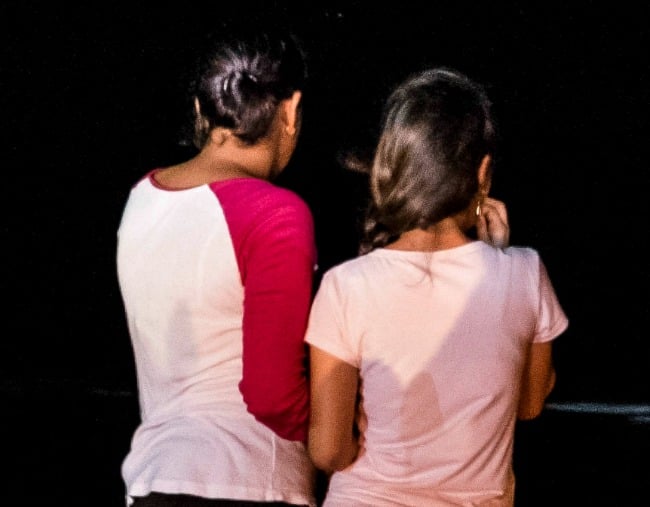
Sitting in suburban Sydney, 68-year-old Hana is desperate for anyone to understand the pain of her family’s separation. An Australian citizen, she has never met her youngest grandchild. “It’s indecent,” Hana sobs. “My daughters have been in Nauru for almost five years. It’s too long.”
4000 kilometres away, in Nauru, Marwa bears the most striking resemblance to her mother. So too, does her anguished expression. She and her daughters have all been recognised as refugees. But like too many others, they have nowhere to go.
“My Mum talks to the ocean,” Marwa says, “asking for her children and grandchildren.” For one awful moment, I imagine my own mother being kept apart from the one-year-old grandson who is the light of our lives. The thought alone is harrowing.
Since January 2014, Australia has afforded the lowest processing priority to family visa applicants sponsored by permanent residents who arrived to Australia by sea. This has left hundreds of people living in the Australian community, indefinitely kept apart from loved ones. The challenge of rebuilding their lives is almost impossible with close family remaining in danger in countries including Afghanistan, Pakistan and Iraq. The uncertainty and stress are crippling.
Astoundingly, one Pakistani refugee family is to be resettled in Scandinavia this month, despite their father and husband living permanently and legitimately in Melbourne. Australia will not even consider such compelling situations.
The ramifications of that approach have also been a central reason why others, in turn, have sought to reach their loved ones in Australia in desperation (by sea). With no other options available to them, they have made gut-wrenching decisions to try to be together. Having fled their homes due to war and persecution, close relatives in Australia are the most common reason refugees in Papua New Guinea and Nauru give for having sought protection from this country, rather than any other.
